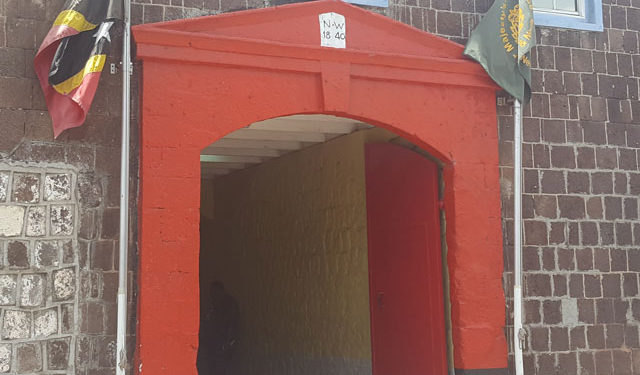Fifteen Inmates Complete His Majesty’s Prison Substance Use Program
The St. Kitts and Nevis National Council on Drug Abuse Prevention Secretariat celebrated a significant victory in its ongoing fight against substance misuse with the successful completion of the “Stages of Change Substance Use Program.” This eight-week initiative, held at His Majesty’s Prison in Basseterre, St. Kitts, from October 14th to December 2nd, 2024, culminated in the graduation of fifteen inmates, marking a pivotal step in their journeys towards rehabilitation and reintegration into society. The graduation ceremony, held on December 16th, honored the inmates’ dedication and the transformative power of the program.
The program, facilitated by a skilled team of professionals including Drug Prevention Officer Ms. Ishelle Huggins, Drug Misuse Intervention Officer Ms. Nigenda Walters, and Deputy Director of the New Horizons Juvenile Rehabilitation Centre and UWI-certified drug Prevention Specialist Ms. Shaneze Sam, provided a structured and supportive environment for participants to confront their substance use issues. The curriculum was carefully designed to equip participants with the tools and knowledge necessary to navigate the complexities of addiction recovery and build a foundation for lasting change. This structured approach ensured a consistent learning experience and fostered a sense of community among participants.
The core of the “Stages of Change Substance Use Program” lies in its comprehensive curriculum, which delves into various aspects of personal growth, self-awareness, and healthier decision-making. Participants engaged in weekly sessions covering a range of topics including the stages of behavioral change, dispelling common myths surrounding substance use, identifying and reinforcing personal values, cultivating healthy relationships, weighing the pros and cons of substance use, developing self-control mechanisms, and setting and achieving meaningful personal goals. This multi-faceted approach aims to address the underlying issues contributing to substance abuse and empower participants to make positive changes in their lives.
The program’s impact was evident in the positive transformations observed in the participants. Ms. Huggins commended the inmates’ commitment, while Ms. Walters noted the remarkable progress they made in identifying triggers, developing coping strategies, and setting realistic goals for their future. These testimonials underscore the program’s effectiveness in fostering self-awareness, equipping participants with practical tools for managing their recovery, and instilling hope for a brighter future. The program emphasizes not just abstinence, but also personal growth and the development of life skills crucial for successful reintegration into society.
The “Stages of Change Substance Use Program” represents a crucial component of the National Council on Drug Abuse Prevention’s broader strategy to combat substance misuse and mitigate its impact on individuals, families, and the wider community. It underscores the importance of rehabilitation and the inherent potential for change within every individual, particularly those within the correctional system. By providing inmates with the opportunity to address their substance abuse issues, the program contributes to reducing recidivism, promoting healthier communities, and ultimately, fostering a more supportive and inclusive society.
Director of the National Council on Drug Abuse Prevention Secretariat, Mrs. Karimu Byron Caines, highlighted the program’s longevity, marking its fourth year of operation. The Council’s commitment to offering the “Stages of Change Substance Use Program” annually demonstrates a sustained dedication to providing effective rehabilitation services within the correctional setting. This commitment signifies the recognition of the ongoing need for such programs and the belief in the transformative power of rehabilitation. The Council actively encourages community involvement and provides contact information for those seeking further information about the program or other initiatives. This open communication fosters collaboration and strengthens the collective effort to address substance abuse in St. Kitts and Nevis.
Share this content:












Post Comment